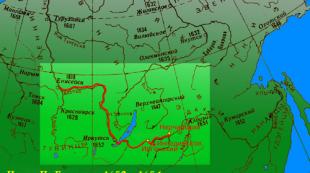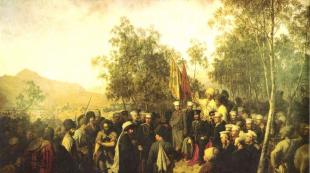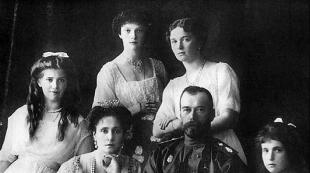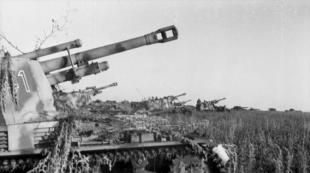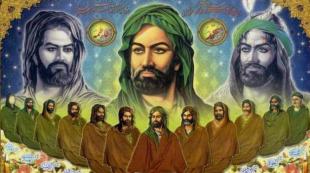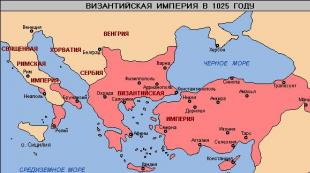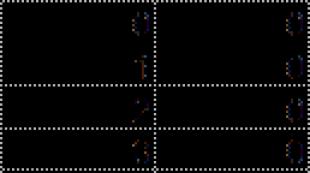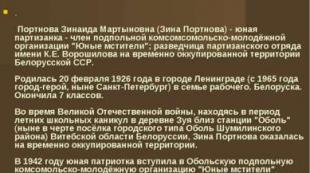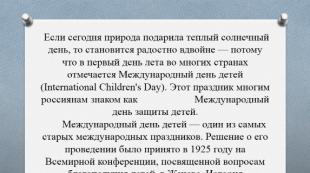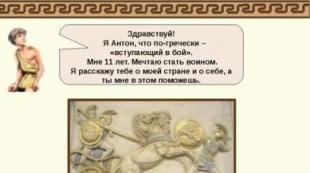Rebellion of Imam Hussain (a). Imam Hussein - the owner of selected qualities A few words about the most worthy of the worthy
Hussein (may Allah be pleased with him) was born on Shaban 5, 4 years (January 10, 626) in Medina. Known by the nickname "shahid" (fallen for the faith). According to legend, below the chest was very similar to his grandfather. On his birthday, the Prophet, like his elder brother Hasan, called him a rare name among the Arabs of that time and at the same time read the adhan in the baby's ear. On the seventh day of birth, the Prophet offered a sacrifice (akika) and distributed silver to poor people according to the weight of Fatima's hair. Hussein, along with his brother Hassan, learned "al-qiraat" (reading the Koran) from Abu Abdarrahmman as-Sulami; From his grandfather, mother, father, Umar and some other askhabs, he adopted eight hadiths.
Hussein, like his brother Hasan, did not take a direct part in the events during the time of the first two caliphs. At the time of Uthman, together with his brother, he again took part in the campaign of Said b. Asa (30/651) from Kufa to Khorasan. Subsequently, when the rebels surrounded the house of Usman, he was sent by his father - along with his brother - to protect the caliph and carry water to his house.
During the caliphate of his father, he arrived in Kufa and took a place in all campaigns. After the death of his father, following his will, he obeyed his brother. Once, during the establishment of an agreement between Hasan and Muawiyah, he did not want to recognize the agreement, but after rejecting the protest and together with his brother, Medina returned. Upon arrival in Medina, he devoted himself to prayers. In the first Sunni and Shiite sources, there is no information about the oath to Hussein as Imam after the death of his brother or about his activities against Muawiyah. On the contrary, it is said that even such attempts are not allowed. At the same time, it is quite obvious that Husayn changed his benevolent attitude towards Muawiya after 56 (676) years. The reason for this can be considered the refusal of Hussein and other Muslims to swear allegiance to the son of Muawiyah, Yezid.
On the night of 28 Rajab 60 (May 4, 680), despite the advice of brother Muhammad b. Hanifiya about the untimeliness of the resettlement of the whole family, with the exception of Muhammad b. Hanifiya, set off on her way to Mecca. Having learned about the departure of Hussein to Mecca and the non-recognition of the power of Yezid, some noble people of Kufa, together with Shabas b. Ribl and Suleiman b. Surad wrote him a letter calling him to become caliph. For this purpose, they sent a separate group to Hussein, led by Abu Abdallah al-Jadali. As a result of this, Hussein, in order to clarify the circumstances on the spot, sent his uncle's son Muslim b. Akila. Muslim 5 Shawwal 60 (July 9, 680) having reached Kufa, began to take an oath of allegiance on behalf of Hussein. It is said that in the first days 12-30,000 thousand people swore allegiance and even Muslim made an open speech in the mosque of Kufa. Upon learning of Muslim's actions, Yezid took the position of governor of Kufa from Numan b. Bashir al-Ansari and appointed the governor of Basra, Ubaidallah b. Ziyad. The first order to the new governor was to drive Muslim out of Kufa or kill him. 8 or 9 Dhu-l-Hijjah 60 (September 9 or 10, 680) Muslim was captured and killed. Therefore, Muslim did not have time to report the inaccuracy of the words about the oath to Hussein. Hussein knew only what was in the first letter of Muslim - about the oath of allegiance.
Lacking information about recent events, Hussein decided to visit Kufa. Abdullah b. Umar and Umar b. Abdarrahman b. Haris were categorically against this campaign, and Ibn Abbas advised not to go alone, but to take someone with you. But Hussein, on the 8th of Dhul-Hijjah 60 (September 9, 680), after the completion of Umrah, along with his family and some companions, set off. During a meeting with two travelers in Sa "labiya, having learned about the betrayal of the inhabitants of Kufa and the murder of Muslim b. Akil and Khani b. Urva, he wanted to turn back, but as a result of the insistent demands of the brothers and sons of Muslim, he was forced to continue on his way. Hussein invited the companions to return back, and he himself remained, including his family and seventy people.Thus a small group of 2 Muharram 61 (October 2, 680) reached Karbala in the province of Ninawa.
The governor of Kufa, Ubaidallah, planned to create an obstacle for the group's refuge in rocky and protected places and drive them into a waterless and unprotected area. At the same time, he ordered the governor of Reya Umar b. Sa "d b. Abu Waqqas, together with his army, oppose Hussein and settle this issue. Umar ordered Amr b. Hajjaj, who called Hussein to Kufa, to block all waterways, then he secretly met with Hussein several times. Details of the dialogue that took place between them are not known, but supposedly Hussein offered to go back, swear allegiance to Yezid, or engage in one of the conditions of Islam, jihad.Umar, with the intention of getting rid of the unpleasant duties entrusted to him, conveyed the proposal to Ubaidallah b.Ziyad with the hope of an agreement.At first, Ubaidallah seemed quite acceptable proposal, but at the insistence of Shamir b. Zu-l-Javshan, who at one time fought in the ranks of the troops under the leadership of Ali, about the impossibility of losing such an opportunity, ordered Hussein, who was in hopelessness (loss of communication with the routes leading to the Euphrates River), to bow before them and bear As a result, Ubaidallah sent a letter to Shamir and Umar ordering Umar to immediately take Husayn prisoner. If this fails, then join the battle, otherwise he will be forced to transfer command to Shamir. Shamir reached the stake on Thursday 9 Muharram. Umar b. Sa "d, in order not to lose what he had earned, decided to carry out the order of Ubaidallah. Hussein and those around him spent the night in prayer, prayer and repentance.
The next day, Hussein, after preparing for the battle, mounted his horse, took the mushaf (Quran) in his hands and approached the troops of Umar with a request - to correctly understand the purpose of his arrival; pronounce a just sentence and the uselessness of an attack on him; subject to acceptance of his request is ready to obey. After this speech, Hur b. Yezid regretted what he had done and went over to the side of Hussein.
The battle started with two arrows from the regiment of Umar b. Sa "da took place in a tragic form. The main reason for this was the inequality of forces. Hussein's army, consisting of twenty-three riders and forty foot soldiers, decreased with lightning speed. By the end, all the soldiers were exhausted from heat and thirst. Hussein, who bravely fought among the foot soldiers, by order of Shamir, Sinan b. Anas al-Nakhai knocked him to the ground with a blow and jumped off his horse, first cutting off his hair, then his head. The enemy soldiers who were nearby pulled everything out of the pockets of the corpse and pogrom in the tents. The sick son of Hussein escaped death thanks to the intercession of Umar b. Sa "da (10 Muharram 61 / October 10, 680). The bodies of the martyrs were interred only the next day by the villagers of Ghadiriyya, who belonged to Bani Assad.
Upon the arrival of the captives and the severed head of Husayn in Damascus, Yezid looked greatly saddened and cursed Ubaidallah b. Ziyad. But it cannot be said that his sadness was real. If he really was so upset, he would at least deprive Shamir and the others of their posts. In addition, there are legends that the order to kill came from him. The surviving son, daughters and sisters of Hussein and other captives from Bani Talib, after spending several days in Damascus, accompanied by guards issued by Yezid, went to Medina.
There are various legends about the burial place of Hussein's head - in Medina at the Baki cemetery, in Najaf near his father, outside of Kufa, in Karbala next to the body, an undefined place in Damascus, in Raqqa and even in Cairo. The most reliable is the first option.
From the children of Hussein. Ali al-Akbar, together with him, fell martyr in Karbala, there are no descendants from Jafar and Abdallah. His family continues through the son of Ali Zainalabidin and are known under the name of seyyids. He also had two daughters, Fatima and Sakina.
The sources say that the Prophet loved both grandchildren very much, no doubt fulfilled all their desires, played games with them, rolled on his back, and even when they climbed on his back while bowing during prayer, he waited for them to get down. Many legends speak of his affection for children. Once the Prophet, being at the minbar, saw that Hasan and Hussein frolicking entered the mosque and then interrupting his speech, went towards his grandchildren, joyfully hugged them "Great Allah, with the words 'children and property for you are a sign of trial'" (Tagabun 64/15) is incredibly right ; seeing them, he could not restrain himself" and only after that he continued his speech. The love of Muslims for Ahl al-Bayt did not stop after the Prophet and continues to this day. always loved, surrounded by care and were sincerely attached to their beloved grandson and rayhane(a bouquet of flowers) The Prophet, Hussein. Therefore, having lost his grandfather and mother at the age of six, he did not really experience orphanhood. In addition, together with brother Hasan, as the beloved grandchildren of the Prophet, they deserved love and respect throughout the Islamic world. Their names are among the most common names given to children.
So, who supports the Nasibis, the killers of Imam Hussain (as)?
It is quite logical that just those who considered Yazid to be the rightful caliph were the same people who killed Imam Hussein (a). We separate the Shias from Yazid and his followers. We turn to our opponents. Kindly tell us if the Ahli Sunnah and the Nasibis feel hatred towards those who supported Yazid and killed Imam Hussain (a)? Unfortunately, it is not certain that this is the case. The Nasibis, who claim to be of the Sunni faith, praise and defend Yazid as a pious man. We can cite the Pakistani scholar Mahmoud Abadi Hanafi, who wrote the book “Khalifa Muawiya aur Yazid” - where he praised Yazid, believing that the method of governance of Hazrat Omar and Yazid was the same. This Imam of the Salafis, without dwelling on this, also cites hadiths from those who killed Imam Hussein (a), which is hiding from the side of those who slander the Shiites of Ali (a).
The proof of guilt lies in the union of those whose hands are stained with blood with those who, without a twinge of conscience, transmit hadiths from the same killers of Imam Hussein (a), since they are the descendants of the killers.
Those who did not take any part in the killing of the Imam (as) naturally curse and curse his killers and will not have any association with these killers in matters related to the Faith. The ultimate criteria for determining WHO the actual killer of Hussein(a) lies in the hadith. No doubt the group whose Salafi ancestors supported Caliph Yazid and killed Imam Hussain (as) will take the hadith of the same people without any shame.
While we consider it obligatory to curse Yazid, Ibn Sad, Ibn Ziyad, etc., compare this with the respect shown by the ulema of Ahl Sunna towards the murderers of Imam Hussein (a) ...
Umar bin Sad bin Abi Waqqas
Dhahabi writes in Siyar al-Alam on the life of bin Sad, volume 4 page 349:
"Umar bin Sadvelthe army that killed Imam Hussain (as),Mukhtarkilled him, ... Imam Nasaitells stories fromhim» .
Ibn Hajr Askalani writes:
"Umar bin Sadbin Abi WakkasWathri Abu Hafs Madani lived inKufa. Hetoldlegendsfromhisfather and AbuSaid al Khudri. His son Ibrahim and grandson Abu Bakr bin Hafs, Abu Isaac Al Subay "and Aizaar bin Harith, ibn Yazid bin Abi Maryam, Qatada, Zuhri and Yazeed bin Habiband others narrated the hadeethsFrom him.Ajlicommented on what he was sayinghadithfrom his father, many took stories from him, hecountsamongTabiinov, and he -whitefish(very reliable) he killed Al Hussein».
Tachhib al tahhib, volume7 pagess 450-451
The book can also be downloaded from the Salafi website:
Tahdhib al Tahdhib Volume 7 No. 747
Another Sunni scholar, Jamaladdin Abi al Hajjaj Yusuf al Mizzi, in his detailed and authoritative work of the rijal "Tahdhib al Kamal" under the section "Omar bin Sad" wrote:
"Ahmed ibn Abdullah al Ajli said: He is the one who killed Husayn and he is the sigah (trustworthy) Tabieen."
This reliable Omar was the son of Sahab Sada bin Waqqas, about him, Imam Bukhari wrote in Tarih al Saghira:
"When Imam Hussein arrived in Karbala, Omar bin Sad was the first person to cut the ropes of the tent"
Tarikh al Saghir, volume 1, page 75
From this it becomes clear that the killers of Imam Hussain (a) were Nasibis. Your salaf followed their path and considered these figures to be reliable and respected persons, based on the cornerstone of the Faith - the hadith in accordance with the traditions that were transmitted by them.
Ubaidallah bin Ziyad
Ibn Hajr Askalani writes about Ibn Ziyad:
“He is Ubaidallah bin Ziyad, the ruler of Kufa at the time of Muawiyah and his son Yazid, he is the one who prepared armies from Kufa to fight Al Hussein until he was killed in Karbala. He was known as ibn Marjana, she is his mother (Marjana).
Ibn Asakir mentioned him in Tarikh Dimashq, he was also mentioned in Sunan Abu Dawud… And he narrated hadiths from Sad abi Waqqas, Muawiyah and Magil ibn Yasar and Ibn Umayya brother of Bani Jadd. And from those who narrated from him are Al Hasan al Basri and Abu al Malith bin Usama."
Taajil al Munfa Bazawaid Rijal al Eyma al Arba page 180
The book can also be downloaded from the Salafi website:
Room 647
Ibn Kathir in Al Bidaya wal Nihaya (Urdu) (vol. 8, page 1252), under the chapter "Ibn Ziyad" also recorded the place of Ibn Ziyad in Sunni hadith scholarship.
If our opponents claim that they have enmity and enmity towards the Shiites because they killed Imam Hussein (as), how will they comment on the fact that their madhhab takes hadith from those who killed him? This is proved by the fact that their leading hadith scholars were not opposed to taking hadith from the killers of Imam Hussain (a). Are you claiming to be the true believers of Ahl ul-Bayt (a) tell us, are the true worshipers of Ahl ul-Bayt (a) taking hadeeth from their killers?
If some ignorant Nasibis are still going to prove that their ancestor Ibn Ziyad is a Shiite, then let us present the words of Ibn Ziyad which clearly prove that Ibn Ziyad considered Yazid to be his Imam. Ibn Kathir states that Ibn Ziyad wrote to Umar Ibn Sad:
“Create a barrier between Hussein and water, treat them as they treated Amir al Muminin Osman, demand from him and his companions the oath to Amir al Muminin Yazid bin Muawiya”
Al Bidaya wal Nihaya (Urdu) volume 8 page 1058
Ahmed bin Daoud Abu Hanifa Dinwari recorded Ibn Ziyad's statements:
“I killed Al Hussain because he rebelled against our Imam Yazid, and Imam Yazid himself sent me a message to kill Al Hussain. Now if killing Husayn is a sin then Yazid is responsible for it."
Akhbaar Tawaal, page 279 (Egypt)
Hence Ibn Ziyad likewise, a prominent Sunni scholar considered Yazid one of the caliphs of Islam or Emir al Mominin. We will inshallah deal with this in our seventh Chapter.
"I killed Al Hussain on the orders of Yazid, otherwise he would have killed me, so I killed Hussain"
Tarikh Kamil, Volume 4, Page 55 (Egypt)
Allama Jalaladdin Suyuti writes in Tarikh Khulfa, on page 140:
"Yazid wrote to his ruler in Iraq, Ibn Ziyad, ordering the assassination of Husayn"
We read that the killers of Imam Hussain were Yazid, who gave the order to Ibn Ziyad to kill Imam Hussain (a) and those people who considered Yazid the caliph and Ibn Ziyad their ruler, they also implemented the order of Yazid. Everything is clear as day. The army that Abu Bakr sent during his caliphate considered him their caliph and no one else, the same was the case with Umar when he sent troops to Iraq, Iran and Syria. Those armies followed the instructions of their respected caliphs because they considered them caliphs or Imams and suppose if there was someone who did not consider Umar or Abu Bakr as their caliph, he could easily refuse to follow their orders. Thus, we see that Ibn Ziyad and his entourage completely obeyed Yazid without any hesitation.
Shabas bin Ribi
Our opponents claimed that the Shiites of Kufa wrote letters to Imam Husayn (as) inviting him to join them in Kufa. One of the leading figures that our adversaries will no doubt be talking about was Shabas bin Ribi. His letter to Imam Hussain (a) is presented in the History from Tabari ( English translation, volume 10, page 25-26) and in Al Bidaya wal Nihaya (Urdu) (vol. 8, p. 1013).
We should note that we do not take hadeeth from this person and we do not praise him. He had no connection with the Shiite madhhab. This traitor, whom our enemies no doubt mark as a Shia, is an authoritative hadeeth narrator in the Ahli Sunnah.
Dhahabi writes about him in Siyar al-A'alam al-Nubla, volume 4 page 150:
“This is a man who rebelled against Imam Ali, he rejected arbitration, and subsequently repented of ... he recited a hadith with reference to Ali, Hudhayfa. Muhammad bin Kab Khudri and Suleiman Timii narrated hadith from him in Sunan Dawood"
Ibn Hajr writes in Tahdhib al Tahdhib, volume 4 page 303:
“Shabas bin Ribi al Tamimi Al Yurboi Abu Abd al Guddus Al Kufi narrated from Hudhaif and Ali, and from those who narrated from him Muhammad bin Kaib al Ghazi and Suleiman Tamimi. Dargutni states that he (Shabas) was the muezzin for the Sajahs. Ibn Habban mentioned him among the truthful (Sigah) and states that he made mistakes, Bukhari and Muslim narrated the hadeeth from him. Al Ajali said that this is the first person who helped in the assassination of Osman and also participated in the assassination of Hussein (r)."
We are turning to justice. Explore the life of this Nasibi/Khawarij. No reasonable person would ever come to the conclusion that he was a Shia Ahl ul-Bayta (a). This so-called Shia of Kufa who wrote letters to Imam Hussain (a) is the transmitter in your Sahih Sitta - Sunan Nasai and Abu Dawud. You consider him an authority figure. Despite his letter to the Imam (as) he can never be defined as a Shia - he was never a true Shia - an ordinary schemer who devoted his entire life to a leading role in stirring up dissension. Despite this, Imams Nasai and Abu Dawud considered him a reliable source. We appeal to those who slander us. Should we consider the killers of Imam Hussein (as) reliable honest people - or should we distance ourselves from such persons? We must point out to the Nasibis that it was actually your Salaf who invited Imam Hussain (as) and then killed him - that is why you still love these people and show your attitude towards them by reciting hadith from them. Would you respect and rely on the words of the man who killed your grandson? Otherwise, why do you respect and accept the word of those who killed the grandson of the Prophet (s)? Isn't such behavior an insult to the memory of Imam Hussain (a) and the Prophet (s)? Would the true followers of Ahl ul-Bayt (a) behave as you do?
Some evidence that the killers of Imam Hussain (as) are Nasibis, while the supporters of Imam Hussein (as) are Shiites.
Proof one
When Imam Hussain (as) left Mecca and reached a place near Kufa, he was met by Hur bin Yazid, accompanied by 1000 soldiers. Hur bin Yazid accompanied the imam. It was his duty to prevent the Imam from returning to Medina if he decided to return. Soon they saw a rider galloping towards them from Kufa. He carried a weapon and had a bow on his shoulder. They all stopped and watched him. When he reached that place, he greeted Hur and his people, but did not greet Husayn and his followers. He handed Hur a letter from Ibn Ziyad. Where the following was said:
“... When this letter reaches you and my messenger comes to you, make Hussein make a halt. Stop him in an open place without protection and water ... "
History of Tabari, Volume 19, Page 102
Yazid bin Ziyad al Muhasir Abu al-Shasa al Kindi, who was with Husayn (a), recognized Ibn Ziyad's messenger. He asked him:
“Are you Malik bin Nusayr al Baddi? He answered: "Yes." He was a member of the Kindi tribe. Yazid bin Ziyad exclaimed: “Let your mother be left without you! What did you bring?". He replied: "I obeyed my imam and remained faithful to my oath." Abu al-Shasa replied, “You have disobeyed your God. Shame on you and the punishment of Hellfire. Indeed, God said: "We have made them Imams who call people to the Hellfire, and on the Day of Judgment they will not be helped." Your imam is one of those."
History of Tabari, volume 19, pages 102 (in English)
Dear readers, who was this messenger of Ibn Ziyad Malik bin Nusayr? This was the same person who approached Imam Husayn (as) on the day of Ashura when he (as) fell from his horse, suffering from wounds, and hit him (as) on the head with a sword. The sword cut through the hood of his cloak and wounded his head.
History of Tabari, volume 19 page 153 (in English)
The words of this cruel man "I obeyed my Imam and remained faithful to my oath", clearly show that he considered Yazid to be his imam, which is the final proof that he was far from the madhhab of Ali/Hussein (as) and associates him with the madhhab who considers Yazid the sixth imam. Sahih Bukhari proves that the son of the second caliph Abdullah ibn Umar adhered to the same.
Proof two
While Muslim bin Aqil was accepting the oath from the Kufis, who had gathered because of dissatisfaction with the tyranny of Bani Umayya, Yazid received a letter from Kufa, written by Abdullah bin Muslim al Hadrani, with the following content:
“Muslim bin Aqil came to Kufa and the Shiites swore allegiance to him to Hussain bin Ali. If you need Kufa, then send a strong man there who will carry out your orders and act in such a way as if you yourself were against your enemy. Al Numan bin Bashir is a weak person or he acts like a weak person.”
History of Tabari, volume 19, page 30 (in English)
He was the first person to write to Yazid, and Umar bin Ughba and Umar bin Sad wrote to him in the same vein. Yazid received this letter and wrote to Ibn Ziyad:
“My followers among the people of Kufa have written to me and informed me that Ibn al Aqil is in Kufa gathering people to start a rebellion among the Muslims. Therefore, after reading this letter, move to Kufa and look for Ibn Aqil until you find it. Put him in chains, kill him or get out."
History of Tabari, volume 19 pages 31 (in English)
Yazid used the word "Shia" to refer to his followers. In the English version, this word was translated as "followers". But this word can be read in the Arabic original and the Urdu version.
Tarikh Tabari (in Urdu), volume 4, part 1, page 154, Nafiis Karachi Academy
Dear readers, you must have recognized the author of this letter, Umar bin Sad. This was the same accursed person who was sent as a commander to kill Imam Hussain (as) and he was the one who aimed the first arrow at Imam Hussain (as).
History of Tabari, Volume 19, Page 129
His words, that is: "The Shiites gave him an oath of allegiance to Hussein bin Ali", clearly show that he actually had no connection with Ali/Hussein(a)'s Shiites. We have already brought to the fore the prestigious place that this person was awarded in the hadeeth of Ahl ul Sunnah. The words of Yazid, that is: "My Shia followers among the people of Kufa have written to me" radically strengthen our position. Umar bin Sad was a Shia of Yazid and was in a group that considered him as their Imam. Are the Nasibis still going to persist and scream what "Hussein's killers were his own Shiites" while we showed everyone and exposed his killers?
Proof three
It is known from history that on the day of Ashura, when the battle began and most of the assistants of Imam Hussain (as) became martyrs, Yazeed bin Magil from Banu Salim Abd Ghais stepped forward from the army of Umar bin Sad and turned to Burair bin Hadair, who was a companion of Imam Hussain (A):
"Do you think Allah is pleased with you?" Burair replied, “By Allah! Allah is pleased with me, but not with you. He replied, “You are a liar. Even until today, you have been a liar. Do you remember when we were among Bani Lavdan? Then you said that Osman was a person who unnecessarily satisfied his desires, that Muawiya bin Abu Sufyan was wrong and caused people to stray from the true path, and that Ali ibn Abu Talib was the Imam of guidance and truth. Burair retorted: "I testify that this is my opinion and faith." Yazeed bin Magil replied: "And I testify that you are one of those who are in error." Burair challenged: “Then I challenge you to a mubahila (mutual curse). Let's turn to Allah, the liar must be cursed and the spreader of lies and untruth will be killed. Then I challenge you to a fight." They both came out and raised their hands to Allah, calling on Him to curse the liar and the one who is right should kill the one who was wrong.
Each of them took the lead against the other. They fought. Yazeed bin Magil hit Burair bin Khudair, but the blow did not harm Burair bin Khudair. Burair shattered the helmet of Yazid bin Magil with his blow, piercing his skull.
History of Tabari volume 19 pages 132-133
Dear readers, we still have to prove in which madhhab were the killers of Imam Hussain (a) and who were in the madhhab of his assistants? Burair bin Hudair said:
Osman is a person who excessively satisfied his desires,
Muawiyah follower and leader of the wrong path
Ali ibn Abu Talib is the Imam of guidance and truth
The above three beliefs correspond to the belief of Shia Isna Ashari (Shia of the 12 Imams). Compare these beliefs with those of Yazeed bin Magil, who was among the opponents of Imam Husayn (as) and considered Burair bin Hudair to be astray because he had these beliefs, just as modern Sunnis believe that the Shiites are in error, since committed to these three positions.
If the Nasibis like these Sipah Sahaba still insist that the Shia killed Imam Hussain (a), while it is the Shia who are the true worshipers of Ahl ul-Bayt (a), then we have a simple and direct question for them:
Do you like the assistant of Imam Hussain (as) Burair bin Hudair, who considers Osman a spender, excessively satisfying his desires, Muawiyah a follower and guide on the wrong path, and Ali ibn Abu Talib the Imam of guidance and truth?
If your answer is yes, then only then you have every right to call yourself those who love Ahl ul-Bayt (a). No, if you do not agree, then you adhere to the school and beliefs promoted by Yazid bin Magil, who was among the assassins of Imam Hussein (as). In addition, the outcome of Mubahil that happened between Burair bin Hudair and Yazid bin Magil is known to all readers and this clarifies the question as to which side was right and which side was wrong.
Proof Four
After a fierce battle, as a result of which Burair bin Khudair became a martyr at the hands of Kab bin Jabir al Azdi, his wife or sister, his killer said to the departing battlefield:
“You helped against the son of Fatima, you killed the leader of the reciters of the Koran. You have brought great disgrace. I swear by Allah! I will never speak to you."
History of Tabari, volume 19 page 134
The assassin Kab bin Jabir al Azdi proudly recited the verses:
"Ask to be told about me
During the battle against Husayn, while the spears were sharpened
I had a spear from Yazan - a tip that did not fail,
And a white sword that was sharpened, and both edges cut
I chose him among the group whose religion was not my religion as I am satisfied with Ibn Harb (i.e. Yazid).....
Tell Ubeydullah if you meet him,
The fact that I am obedient and attentive to the Khalifa ... "
History of Tabari, volume 19 page 134
His words, "whose religion was not my religion" clearly shows that his religion was different from the religion of those who were followers of Imam Hussain (as), while the faith of Imam Hussain (as) and his followers was confirmed through the words of Burair bin Hudair. The belief of Yazid bin Magil was that Yazid bin Mu'awiyah is the caliph, which reflects the ideology of Ahli Sunna, supported by Abdullah ibn Omar in Sahih Bukhari. If Nasibis like the Sipah Sahaba and enemies of the Shiites accept the religion and creeds of Burair bin Hudayr, only then can they justly consider themselves followers of Ahl ul-Bayt (s), otherwise, they should be ashamed of professing the same religion as the killers of the Imam Hussain (a).
Proof fifth
Ibn Kathir recorded the following:
“Qays bin Mashar Sadadi brought a letter from Hazrat Husayn to Kufa where Husayn bin Numayr Sagfi caught it and sent it to Ubaydullah ibn Ziyad. Ibn Ziyad wanted him to go up to the top of the palace and scold the liar Ali bin Abu Talib, and his son the liar Husayn. He got up and began to praise Allah and then said: “O people! Without any doubt, this man Hussein bin Ali is the best of all the creatures of Allah and he is the son of Hazrat Fatima, daughter of the Holy Prophet, and I am his messenger. Answer him, obey him and listen to him. Then he cursed Ubaydullah ibn Ziyad and his father, prayed for the salvation of Hazrat Ali and Hazrat Hussein. Then he was thrown from the top of the palace in front of Ibn Ziyad.
Al Bidaya wal Nihaya (Urdu), volume 8, pp. 1045-1046, chapter "The Incident of Husayn bin Ali, the reasons for his exit from Mecca and his murder"
Just compare the beliefs of Ibn Ziyad and Qays bin Mashar with those of Shia and Ahl Sunnah and ask yourself:
Whose school adheres to the position of the messenger of Imam Hussain (a) Qays bin Mashar, cursing Ibn Ziyad and his father?
And who gives an honorable place to Ibn Ziyad in their madhhab, accepting hadith from him?
In addition, Husayn bin Numair played the role of a close associate of Ibn Ziyad, who arrested the messenger of the Imam and sent him to Ibn Ziyad, also apparently directed against Imam Husayn (a) and His (a) supporters. After the Karbala Incident, he was burned along with Ibn Ziyad ( Tarikh al-Saghir, Volume 1 Imam Bukhari). But it is worth noting the fact that Hussein narrated a hadith narrated in Sunni texts.
Hafiz ibn Hajar Askalani recorded:
حصين بن نمير الكندي ثم السكوني الحمصي روى عن بلال مولى أبي بكر۔۔۔ كان على الجيش الذين قاتلوا بن الزبير بمكة ويقال أنه أحرق الكعبة۔۔۔ قلت كان أحد أمراء يزيد بن معاوية في وقعة الحرة
“Hussein bin Numair al Kindi Sakuni Himsi narrated from Bilal, the slave of one man, namely Abu Bakar… He was in the army that fought Ibn al-Zubair in Mecca and burned the Kaaba… He was one of Yazid’s commanders in the battle of Hara »
Tahdhib al Tahdhib, Volume 2, Number 683
Proof six
Ibn Kathir recorded that Ubaydullah ibn Ziyad caught Hani bin Urwan and started torturing him. When Hani's relatives gathered in his palace, Ibn Ziyad, through Qadi Shureh, sought to bring them back calming:
“Ubaydullah ibn Ziyad said to Hani: “Allah made your blood Halal for me because you are Haruri.” Thus, according to his order, he was locked in the house. His Banu Majaj tribe gathered at the door of the palace next to Umro al Hajjaj. They thought Honey was killed. When Ibn Ziyad heard their noise, he asked Qadi Shureh, who was next to him, to go to the people and tell them that the Emir had detained him so that he could ask him about Muslim bin Agil. Therefore, Qadi told them: "Your head is alive, and our emir has beaten him to such an extent that there is no danger to his life."
Al Bidaya wal Nihaya (Urdu), volume 8, pp. 1018-1019, topic "The Incident of Husayn bin Ali, the reasons for his exit from Makkah and his assassination"
If the Nasibis did not recognize this Qadi Shureh, then another follower of Ibn Ziyad allows us to show our respected place in the madhhab of the Ahli Sunnah. This man is not only praised by the Sunni ulema, but is also a hadith narrator in such a collection as Sahih Bukhari.
Imam Ibn Hajar Askalani recorded:
البخاري في الأدب المفرد والنسائي شريح بن الحارث بن قيس بن الجهم بن معاوية بن عامر الكندي أبو أمية الكوفي القاضي ويقال شريح بن شرحبيل و يقال بن شراحيل۔۔۔ وقال حنبل بن إسحاق عن بن معين شريح بن هانئ وشريح بن أرطاة وشريح الق اضي أقدم منهما وهو ثقة وقال العجلي كوفي تابعي ثقة۔۔۔ المفرد وقال بن سعد توفي سنة 79 وكان ثقة
Shureh bin al-Harith bin Qays bin al-Juham bin Mu'awiyah al-Kindi Abu Amufya al-Kufi Qadi, he is called Shureh bin Sharhabil or Sheraheel, narrated in Bukhari, Sunan al-Nasa'i... Hanbal bin Ishaq, it is narrated that Ibn Miin said of him: “ Sigah". Al-Ejli said: "Kofi Tabii Sigah" ... Ibn Saad said: He died in 79 and he is "Sigah".
Tahdhib al Tahdhib, volume 4, numbers 574
If any of the Nasibis still accuse Shia of being involved in the assassination of Imam Hussein (as), then that is nothing but stubbornness, for the truth is that the Sunni ulema not only praised Ibn Ziyad's assistant, but also considered worthy enough to accept hadith from him regarding religion.
His Grace Imam Hasan left this mortal world, having adequately fulfilled his difficult mission of leading people. According to the instructions of the Messenger of Allah and Imam Ali, as well as the will of Hasan ibn Ali, the imamat (spiritual and political leadership of the country) was entrusted to his lordship Imam Hussein .
Imam Hussein saw Mu'awiya illegally seize the reins of government. Using the power of Islam in his own interests, he tried in every possible way to destroy the divine decrees and the foundations of the Islamic state. This destructive Tagut rule greatly grieved and brought suffering and pain to the imam.
Imam Hussein, like his brother Imam Hassan was unable to muster enough loyal supporters and an army of warriors to overthrow the illegitimate rule.
His Grace Imam Hussein knew that if he spoke openly and declared his rights and goals, he would be immediately put to death. He knew perfectly well that this would not benefit Islam. So, I had to be patient and wait.
As long as Muawiyah was alive, Imam Hussein, like his brother, preferred to avoid open confrontation with the unrighteous authorities. Sometimes, as a sign of disapproval, the Imam criticized Mu'awiya's rule.
During the period when Muawiya was taking an oath of allegiance to his son Yazid from people, his lordship Imam Hussein openly opposed his illegal actions, flatly refusing to swear allegiance to Yazid as the caliph. Imam Hussain told Muawiya about this and even criticized his illegal actions in writing . In turn, Muawiya did not try to force the imam to take the oath, this continued as long as Muawiya was alive.
Rebellion of Imam Hussein
After the death of Muawiya, Yazid ascended the throne, who called himself the "Commander of the Faithful." In order to justify his illegal rule, he decides to write a message to famous and respected people, in which he urged them to recognize his rule, thereby obtaining some kind of conditional legitimacy for his power. Yazid wrote a letter to the governor of Medina, in which he demanded that the latter take an oath of allegiance to him from Imam Hussein, and in case of refusal to kill his lordship. The governor of Medina informed the imam about Yazid's order, to which his lordship said: “Verily, we belong to Allah and to Him is our return. We need to say goodbye to Islam if the Islamic ummah is ruled by people like Yazid.” .
His Grace Imam Hussein (peace be upon him!) knew perfectly well that after refusing to recognize the rule of Yazid, his further stay in Medina would become very life-threatening. Therefore, by the will of the Almighty, he secretly leaves Medina at night and goes to Mecca. The news of the imam's arrival and his refusal to swear allegiance to Yazid quickly spread in Mecca. In addition, this news quickly reached Kufa. . The Kufis began to call on the imam to come to their city and head the Islamic state. Then the imam sent his authorized Muslim ibn Akil (cousin of the imam) to them, so that he, having been among the people, informed the imam about the situation in the city. When Muslim reached Kufa, he faced a warm welcome from its inhabitants, and many thousands of people began to swear allegiance to Muslim, as the deputy of Imam Hussein. Then, Muslim wrote a letter to the Imam that the people were ready for his arrival. Imam Hussain knew the Kufis well and remembered their infidelity, religious weakness and cowardice during the reign of Imam Ali and Imam Hassan. It was impossible to trust the sincerity of this people, but still, in order to fulfill the order of the Almighty, the imam decides to go to Kufa.
The eighth day of the month of Zulhiji is the day when all the pilgrims headed towards Mina to perform one of the rites of the Hajj . And everyone who fell behind the procession tried to join the rest. But His Grace Imam Hussein, who was in Mecca with his family and companions, leaves it at such a time and goes to Iraq. By this, the imam, fulfilling his duty, wanted to show the Muslims that the son of the Messenger of Allah did not recognize the official power of Yazid, and did not swear allegiance to him, as many did, but rebelled against the tyrannical regime.
At this time, Yazid learned about the stay of the representative of Imam Hussein Muslim ibn Akil in Kufa and that many swore allegiance to Muslim as a messenger of Imam Hussein.
Yazid sends Ubaydullah ibn Ziyad to Kufa, who was distinguished by his baseness and was betrayed throughout the Umayyad dynasty. Ibn Ziyad, using the weakness in faith and cowardice of the Kufis, intimidating them, managed to get people to leave Muslim ibn Akil alone. Not obeying the threats of Ibn Ziyad, Muslim enters into an unequal battle with the soldiers and dies, showing courage and courage. Peace, mercy and greetings of Allah to this true and faithful companion of the imam!
Ibn Ziyad was able to turn the infidel Kufis against Imam Hussein. It got to the point that some of those who once wrote letters to the Imam asking him to come to Kufa, now, wearing armor, were waiting for the arrival of the Imam in order to put him to death. His Grace Imam Hussein from the very first night he left Medina and throughout the whole time that he was in Mecca, as well as on the way from Mecca to Karbala, where he fell a martyr, indicated, both indirectly and openly, that his goal was to show people the true essence of the anti-Islamic despotic regime of Yazid. Its purpose is to encourage good and warn against evil deeds. His feat is opposition to oppression. The Imam emphasized that apart from reviving the true essence of the Quran and the religion of Muhammad (may Allah bless him and his family!), he had no other goal in his rebellion. The uprising was his religious duty, even if it ended with the death of the imam and his companions, as well as the capture of his family.
Dear Messenger of Allah, as well as Imam Ali and Imam Hasan have repeatedly said that in the future Imam Hussein will be martyred. Even on the birthday of the imam, the Messenger of Allah said that Hussain would be martyred in Karbala .
His Grace Imam Hussein also foresaw that martyrdom awaited him on this trip. But he was not one of those who, before divine decrees, would think about his life or about his family. The Imam was a man who considered troubles in the path of Allah as mercy, and martyrdom as happiness (may His Grace Imam Hussein have eternal peace!).
The martyrdom of Imam Hussein became known throughout the Islamic world, and even ordinary people knew about the details of that tragic battle and subsequent events, for many had heard about it from the Messenger of Allah, the Commander of the Faithful and Imam Hassan (peace be upon them!).
Imam Hussein said: “Whoever is ready to give his life on our way and meet the Lord, let him go on the road with me.” . Many of his lordship's acquaintances tried to prevent his progress in Kufa. These people have forgotten that Imam Hussein is the son of Ali ibn Abi Talib and the deputy of the dear Prophet of Islam, and that he is better informed about his religious duties than anyone else. Allah Almighty placed an obligation on him, and he will not move away from him! Imam Hussein continued on his way despite the condemnation of those around him. He fell a martyr's death along with his faithful companions and children. Each of his companions was like a bright star. They all died, but with their blood they turned the hot land of Karbala into a red desert of tulips, so that we understand that Yazid (as well as the Umayyad dynasty, mired in sins) is not the deputy of the Messenger of Allah. The Umayyad dynasty and Islam are incompatible.
Indeed, if it were not for the martyrdom of His Grace Imam Hussein, people would consider the oppressor and tyrant Yazid the true deputy of the Messenger of Allah and the Caliph of Muslims. When news of the depravity and immoral qualities of Yazid reached the people, how would they feel about Islam? Because such an Islam, whose representative Yazid, in the eyes of many would be just as disgusting as Yazid.
The pure family of dear Imam Hussein was captured by Yazid's army. It conveyed to the people the last message of the martyrs of Karbala.
We have heard and know that the cry of the oppressed family of the Prophet, resounding in various cities, bazaars, squares, mosques and the palace of Ibn Ziyad and the despicable Yazid, saturated with sins, exposed and showed the true face of the oppressors to simple and deceived people.
In this way, they proved that Yazid, who spends all his time playing with dogs and drinking wine, has no right to the Caliphate. Their words completed the message of His Grace Imam Hussein and raised a storm in the hearts of the people. The name of Yazid has forever become the personification of the lowest and most disgusting. Thanks to the rebellion of the imam, all the plans and devilish desires of the oppressors were turned into dust.
Through an in-depth study of the rebellion of Imam Hussein, we will be able to become familiar with the fruitful and comprehensive influence of this movement.
From the day of the death of Imam Hussein to this time, his followers, as well as all those who appreciate and respect true human greatness, dress in black clothes and, mourning, spend the day of the martyrdom of the Imam in mourning and sorrow, thereby expressing their greatest sorrow. Our immaculate imams have always urged to preserve the memory of the events of Karbala. Our imams not only performed ziyarat to the place of death of Imam Hussein and his faithful companions and held mourning ceremonies on this occasion, but also pointed out the great importance of holding such ceremonies.
So Abu Ammar says: “Once I visited Imam Sadiq. He asked: "Read us verses about Imam Hussein." When I started reciting poetry, the imam began to cry. I read, but the imam wept, so much so that his voice was heard outside the house. When I finished reading the poems, the imam told me about the importance and great retribution of the one who reads mourning panegyrics, and thereby encourages people to cry for the deceased Imam Hussein .
The imam also said: “It is not appropriate to shed tears and show impatience for any grief, except for the tragedy that happened to Imam Hussein ibn Ali, the reward for which will be priceless” .
His Grace Imam Bakir al Ulum said to Muhammad ibn Muslim, one of his companions: "Tell our followers to visit the grave of Imam Hussein, for for every person with faith in our leadership (imamat) - this matter is important" .
His Lordship Imam Sadiq said: "Indeed, visiting the grave of His Lordship Imam Hussein is beyond any deed." .
Indeed, visiting the grave of Imam Hussein is a great school that teaches humanity the lessons of faith and righteousness. This school directs the human spirit to unprecedented heights of purity and devotion to the divine path. The mourning of Imam Hussein, as well as visiting the grave of his lordship, is of great importance in spiritual education. But you need to know that it would be wrong to pay all your attention only to these rites, because this ceremony and religious philosophy educates in a person, first of all, the protection of religious laws, devotion and sacrifice in the name of religion. We must learn humanity in the school of Imam Hussein. Our hearts should be free from everything that is outside of God, if we paid our attention only to the external form and rituals, then the noble goals of the rebellion of Imam Hussein would be forgotten.
One of the two main currents of modern Islam is Shiism. Imam Hussein was one of those people with whom the birth of this religious trend is associated. His biography can be quite interesting both to a simple layman and to people who are associated with scientific activities. Let's find out what Hussein ibn Ali brought into our world.
Pedigree
The full name of the future imam is Hussein ibn Ali ibn Abu Talib. He came from the Hashemite branch of the Arab tribe of the Quraysh, founded by his great-great-grandfather Hashim ibn Abd Manaf. The same branch belonged to the founder Mohammed, who was Hussein's grandfather (on his mother's side) and uncle (on his father's side). Mecca was the main city of the Quraysh tribe.
The parents of the third Shiite imam were Ali ibn Abu Talib, who was the cousin of the Prophet Muhammad, and the latter's daughter Fatima. Their descendants are usually called Alides and Fatimids. In addition to Hussein, they also had an older son, Hassan.
Thus, Hussein ibn Ali belonged to the most noble, according to Muslim concepts, family, being a direct descendant of the Prophet Muhammad.
Birth and youth
Hussein was born in the fourth year of the Hijra (632) during the stay of the family of Muhammad and his supporters in Medina after fleeing Mecca. According to legend, the Prophet himself gave him a name, predicted a great future and death at the hands of representatives of the Umayyad family. Almost nothing is known about the early years of the youngest son of Ali ibn Abu Talib, since at that time he was in the shadow of his father and older brother.
The future Imam Hussein enters the historical arena only after the death of his brother Hassan and Caliph Muawiyah.
Rise of Shiism
Now let's take a closer look at how the Shiite trend of Islam arose, because this issue is closely connected with the life and work of Hussein ibn Ali.
After the head of the Muslims began to be elected at a meeting of elders. He bore the title of caliph and was endowed with full religious and secular power. The first caliph was one of Muhammad's close assistants, Abu Bakr. Later, the Shiites claimed that he usurped power, bypassing the legitimate claimant - Ali ibn Abu Talib.

After the short reign of Abu Bakr, there were two more caliphs, who are traditionally called righteous, until in 661, Ali ibn Abu Talib, the cousin and son-in-law of the Prophet Muhammad himself, father of the future Imam Hussein, was finally elected the ruler of the entire Islamic world.
But the ruler of Syria, Muawiya, from the Umayyad family, who was a distant relative of Ali, refused to recognize the authority of the new caliph. They began to conduct military operations among themselves, which, however, did not reveal the winner. But at the beginning of 661, Caliph Ali was killed by conspirators. His eldest son Hasan was elected as the new ruler. Realizing that he could not cope with the experienced Muawiyah, he handed over power to him, with the condition that after the death of the former Syrian governor, she would return to Hasan or his descendants.
However, already in 669, Hassan died in Medina, where, after the murder of his father, he moved with his brother Hussein. It is believed that death was due to poisoning. Shiites see the perpetrators of the poisoning as Muawiya, who did not want power to slip away from his family.
Meanwhile, more and more people showed dissatisfaction with the policies of Muawiya, grouping around the second son of Ali - Hussein, whom they considered the real vicar of Allah on Earth. These people began to call themselves Shiites, which is translated from Arabic as "followers." That is, at first, Shiism was more of a political trend in the Caliphate, but over the years it increasingly took on a religious color.
The religious gulf between the Sunnis, supporters of the Caliph, and the Shiites grew more and more.
Prerequisites for confrontation
As mentioned above, until the death of Caliph Muawiya, which happened in 680, Hussein did not play a very active role in the political life of the Caliphate. But after this event, he rightly declared his claims to supreme power, as was previously agreed between Muawiyah and Hassan. Such a turn of events, of course, did not suit the son of Muawiya Yazid, who had already managed to take the title of caliph.
Supporters of Hussein, the Shiites, declared him an imam. They claimed that their leader was the third Shia imam, counting Ali ibn Abu Talib and Hassan as the first two.
Thus, the intensity of passions between these two parties grew, threatening to turn into an armed confrontation.

The beginning of the uprising
And the uprising broke out. The rebellion began in the city of Kufa, which was located near Baghdad. The rebels believed that only Imam Hussein was worthy to lead them. They offered him to become the leader of the uprising. Hussein agreed to take on the role of leader.
In order to reconnoiter the situation, Imam Hussein sent his close associate, whose name was Muslim ibn Aqil, to Kufa, and he himself came out with supporters from Medina after him. Upon arrival at the place of the uprising, the representative took the oath on behalf of Hussein from 18,000 residents of the city, about which he informed his overlord.
But the administration of the Caliphate also did not sit idly by. To suppress the uprising in Kufa, Yazid appointed a new governor. He immediately began to apply the most stringent measures, as a result of which almost all of Hussein's supporters fled the city. Before Muslim was captured and executed, he managed to send a letter to the imam, telling about the circumstances that had changed for the worse.

Battle of Karbala
Despite this, Hussein decided to continue the campaign. He, along with his supporters, approached a town called Karbala located on the outskirts of Baghdad. Imam Hussein, along with a detachment, met there numerous troops of Caliph Yazid under the command of Umar ibn Sad.
Of course, the imam with a relatively small group of his supporters could not resist the whole army. Therefore, he went to negotiations, offering the command of the enemy army to release him along with the detachment. Umar ibn Sad was ready to listen to the representatives of Hussein, but other commanders - Shir and ibn Ziyad - persuaded him to set conditions that the imam simply could not agree to.
The grandson of the Prophet decided to accept an unequal battle. The red flag of Imam Hussein fluttered over a small detachment of rebels. The battle was short-lived, as the forces were unequal, but furious. Caliph Yazid's troops celebrated a complete victory over the rebels.

Imam's death
Almost all of Hussein's supporters, in the amount of seventy-two people, were killed in this battle or captured, and then subjected to a painful execution. Some were imprisoned. Among those killed was the imam himself.
His severed head was sent immediately to the governor in Kufa, and then to the Caliphate, so that Yazid could fully enjoy the victory over the Ali family.
Consequences
Nevertheless, it was the death of Imam Hussein that influenced the process of the future collapse of the Caliphate, and even more than if he had remained alive. The perfidious murder of the grandson of the Prophet and the blasphemous mockery of his remains caused a whole wave of discontent throughout the Islamic world. The Shiites finally separated themselves from the Caliph's supporters - the Sunnis.

In 684, an uprising under the banner of revenge for the martyrdom of Hussein ibn Ali broke out in the holy city of Muslims - Mecca. It was headed by Abdullah ibn al-Zubayr. For eight whole years he managed to maintain power in the hometown of the Prophet. Eventually, the caliph was able to regain control of Mecca. But this was only the first in a series of rebellions that shook the Caliphate and took place under the slogan of revenge for the murder of Hussein.
The assassination of the third imam was one of the most iconic events in Shia teachings, which further rallied the Shiites in the fight against the Caliphate. Of course, the power of the caliphs lasted for more than one century. But by killing the heir of the Prophet Muhammad, the Caliphate inflicted a mortal wound on itself, which in the future led to its collapse. Subsequently, Shiite states of the Idrisids, Fatimids, Buyids, Alids and others were formed on the territory of the once single powerful state.
The memory of Hussein
The events connected with the assassination of Hussein acquired a cult significance for the Shiites. It is to them that one of the largest Shiite religious events - Shahsey-Wakhsey - is dedicated. These are the days of fasting, on which the Shiites mourn for the murdered Imam Hussein. The most fanatical of them inflict rather severe wounds on themselves, as if symbolizing the suffering of the third imam.

In addition, the Shiites made a pilgrimage to Karbala - the place of death and burial of Hussein ibn Ali.
As we have seen, the personality, life and death of Imam Hussein underlie such a major Muslim religious movement as Shiism, which has many followers in the modern world.
